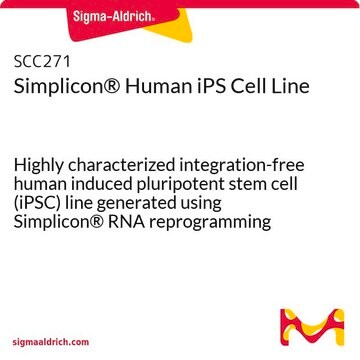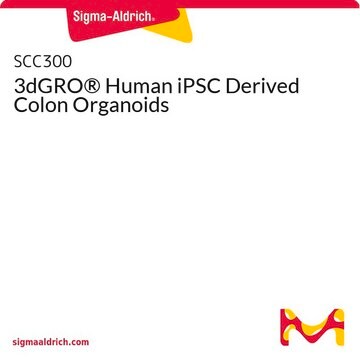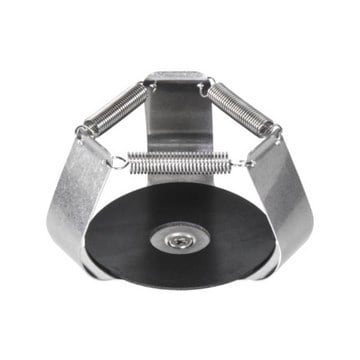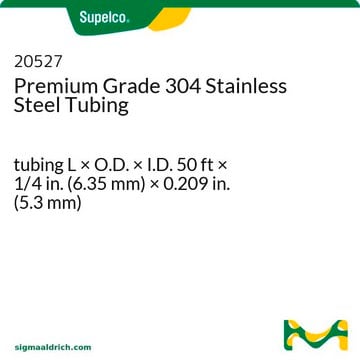IPSC0028
iPSC EPITHELIAL-1
human (Caucasian female, 24 years old)
Synonym(s):
iPS Cells human
About This Item
Recommended Products
product name
iPSC EPITHELIAL-1,
biological source
human (Caucasian female, 24 years old)
form
liquid
storage temp.
−196°C
Looking for similar products? Visit Product Comparison Guide
General description
Application
Features and Benefits
Quality
Legal Information
1. SA Licensed Pluripotent Products- [Licensed iPS Cells and Licensed iPS Cell Kit Products (components used to produce iPS Cells)]
(i) End User shall not use SA Pluripotent Products and its derivatives for uses other than for End User′s internal research use; End User may not use the SA Pluripotent Products and its derivatives for Commercial Purpose*.
(ii) If End User wishes to use SA Pluripotent Products and its derivatives for Commercial Purpose, End User shall contact AJ to negotiate a requisite license.
(iii) End User shall not transfer, sell or supply any SA Pluripotent Products and its derivatives to Third Parties, except that End User may transfer SA Pluripotent Products and its derivatives solely to bona-fide collaborators and/or sub-contractors who perform research activities excluding Commercial Purpose*solely for End User′s research (but not for End User′s financial gain) on behalf of and under the direct control of the End-User.
(iv) End User shall not use SA Pluripotent Products and its derivatives for administration and use for humans/animal therapeutic, diagnostic and/or prophylactic purposes including but not limited to clinical applications, cell therapy, transplantation, and/or regenerative medicine.
(v) No other right, express or implied is conveyed by the sale of SA Pluripotent Products.
*Commercial Purpose includes use of the SA Pluripotent Products and its derivatives, (i) for the manufacture of related products (i.e., culture medium and equipment) distributed or sold to a Third Party; (ii) to provide a service, information or data to a Third Party; and (iii) for screening commercially active compounds for the purpose of developing the compound for commercial sale.
2. Licensed Differentiated Cells
(i) End User shall not use Licensed Differentiated Cells for uses other than for End User′s internal research use. For clarity, End User is allowed to use Licensed Differentiated Cells for research use in screening applications, including high-throughput screens inclusive of small molecules, antibodies, proteins, peptides, miRNAs, and large molecule screening.
(ii) End User may transfer, distribute or supply Licensed Differentiated Cells to Third Parties in accordance with section 2(iii) of the Customer Notice.
(iii) End User shall not use Licensed Differentiated Cells for administration and use for humans/animal therapeutic, diagnostic and/or prophylactic purposes including but not limited to clinical applications, cell therapy, transplantation, and/or regenerative medicine.
(iv) No other right, express or implied is conveyed by the sale of Licensed Differentiated Cells.
Signal Word
Warning
Hazard Statements
Precautionary Statements
Hazard Classifications
Met. Corr. 1
Storage Class Code
8A - Combustible corrosive hazardous materials
WGK
WGK 2
Flash Point(F)
Not applicable
Flash Point(C)
Not applicable
Certificates of Analysis (COA)
Search for Certificates of Analysis (COA) by entering the products Lot/Batch Number. Lot and Batch Numbers can be found on a product’s label following the words ‘Lot’ or ‘Batch’.
Already Own This Product?
Find documentation for the products that you have recently purchased in the Document Library.
High-Throughput-Compatible Assay to
Detect Tau Aggregates Using iPSC-Derived
Cortical Neurons Maintained in a
Three-Dimensional Culture Format
Articles
The Simplicon™ RNA Reprogramming Technology is a next generation reprogramming system that uses a single synthetic, polycistronic self-replicating RNA strand engineered to mimic cellular RNA to generate human iPS cells.
Our team of scientists has experience in all areas of research including Life Science, Material Science, Chemical Synthesis, Chromatography, Analytical and many others.
Contact Technical Service









